0.2.1 Meet the course team of AI in Practice: Applying AI
Course subject(s)
Module 0: Getting started: AI in Practice: Applying AI
Meet the program’s support team
In this course AI in Practice: Applying AI we would like to introduce you to a wide variety of angles, ideas and research in the field of AI. We want to show you what different public and private organizations do with AI and which innovations are realized within the various ICAI labs. And as a result of our choice for variety, many people are involved in the program. First of all, in order not to lose your way in that labyrinth of AI studies, a team of supervisors is ready to guide you through the two courses and to provide help and explanation where necessary.
Hennie Huijgens – Course founder
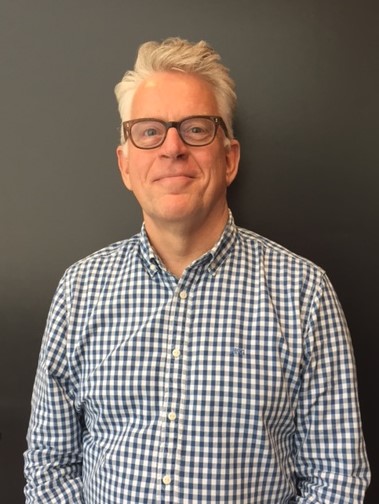 Hennie Huijgens works as an independent software analytics expert at Goverdson. In 2018 he received a PhD at the Delft University of Technology in the Netherlands on the subject Evidence-Based Software Portfolio Management. He co-developed and led the AI for FinTech Research, an ICAI lab collaboration of ING and Delft University of Technology. He developed the AI in Practice program – supported by specialists from the Extension School and the NewMedia Center of Delft University of Technology.
Hennie Huijgens works as an independent software analytics expert at Goverdson. In 2018 he received a PhD at the Delft University of Technology in the Netherlands on the subject Evidence-Based Software Portfolio Management. He co-developed and led the AI for FinTech Research, an ICAI lab collaboration of ING and Delft University of Technology. He developed the AI in Practice program – supported by specialists from the Extension School and the NewMedia Center of Delft University of Technology.
“Learn how to integrate AI into your organization. Start by recognizing AI’s multiple benefits and implications and end by making a plan for its application.”
Luís Cruz – Course e-moderator
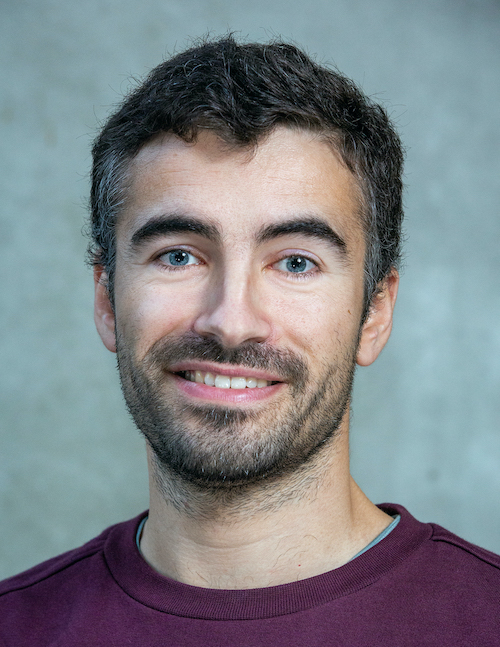
Luís Cruz is an Assistant Professor at the Delft University of Technology and the Scientific Manager of the AI for Fintech Research, an ICAI lab collaboration of ING and Delft University of Technology. He holds a Ph.D. in Computer Science from the University of Porto, Portugal. Dr. Cruz has been actively contributing to the research fields of Machine Learning Engineering and Green Software Engineering. His work aims at defining software engineering practices for machine learning projects and at improving development processes to deliver carbon-efficient software. He will moderate both courses, solving operational problems where possible and being the first-line support for any questions from learners of the course.
Marko Matušovič – Student Assistant
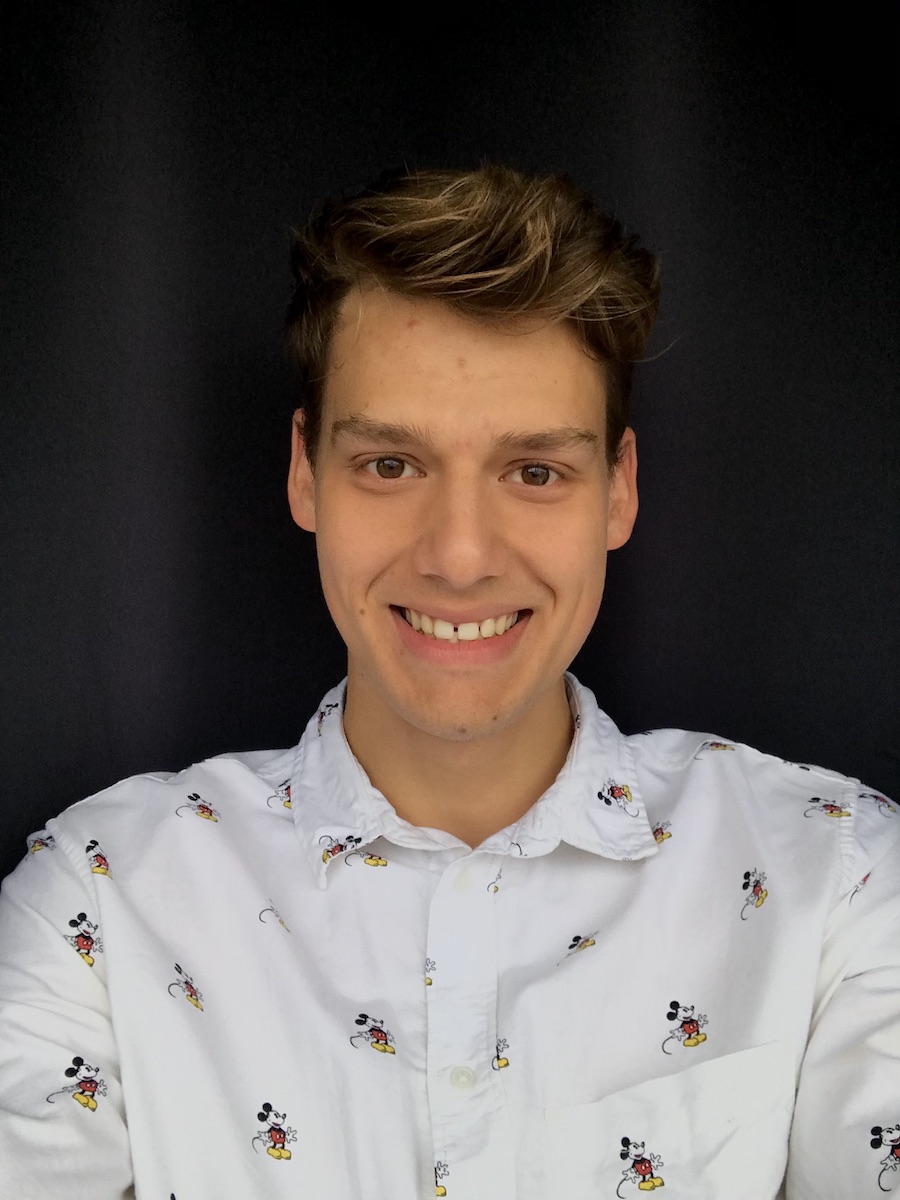 Marko Matušovič is a third year student of Computer Science & Engineering at Delft University of Technology in the Netherlands. There, he studied general introduction to machine learning as well as various techniques of multimedia analysis using AI algorithms. Since his second year, he is working as a teaching assistant for various courses from the CSE bachelor. In this MOOC he will be responsible for creating and managing the quick questions after each lecture. He will also moderate the debates and answer questions on the discussion forum.
Marko Matušovič is a third year student of Computer Science & Engineering at Delft University of Technology in the Netherlands. There, he studied general introduction to machine learning as well as various techniques of multimedia analysis using AI algorithms. Since his second year, he is working as a teaching assistant for various courses from the CSE bachelor. In this MOOC he will be responsible for creating and managing the quick questions after each lecture. He will also moderate the debates and answer questions on the discussion forum.
Natália Struharová – Student Assistant
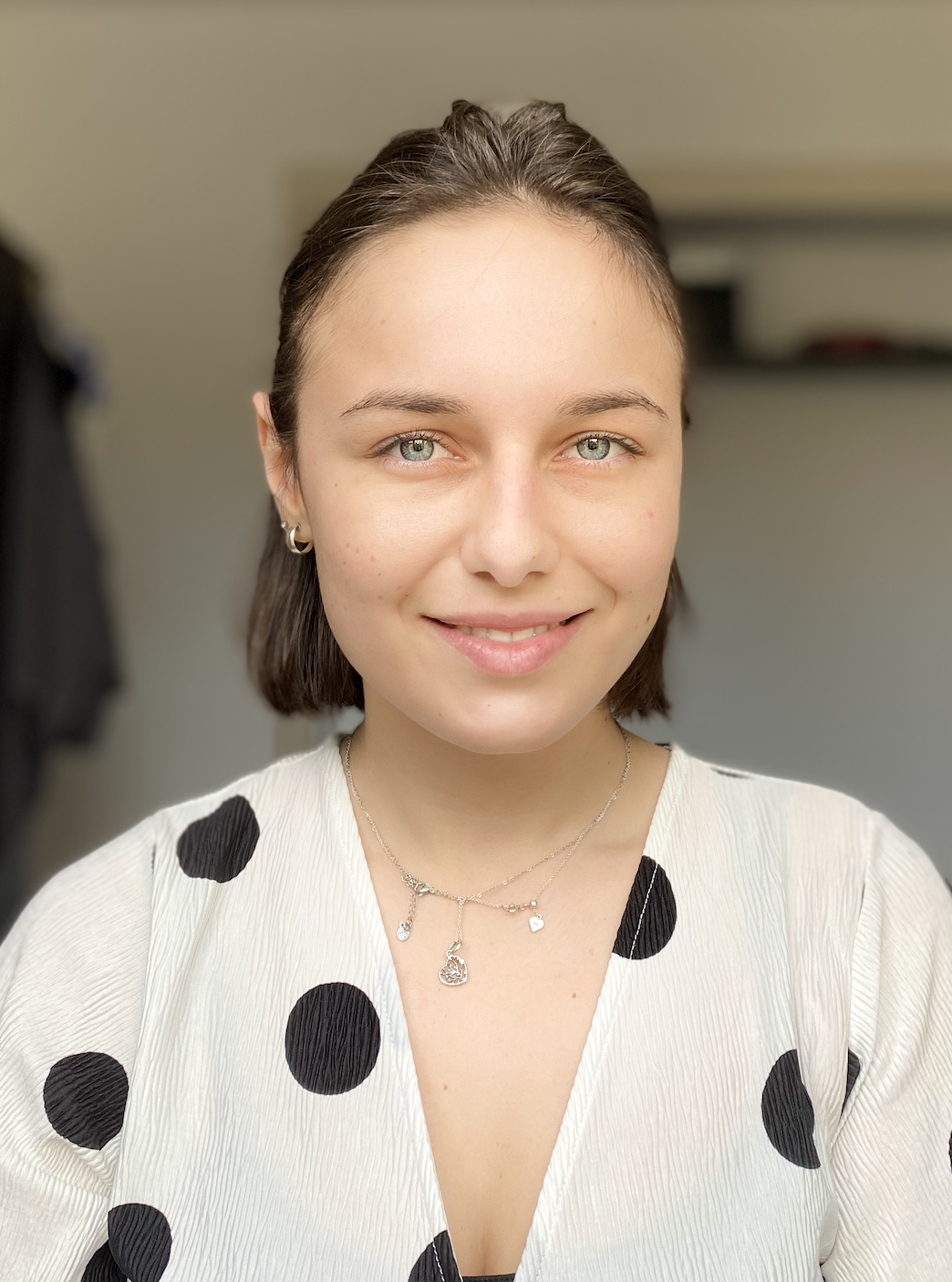 Natália Struharová is a third year student Computer Science and Engineering at Delft University of Technology. During her studies up until now, she acquired knowledge about machine learning techniques and their application in multimedia, including speech recognition and synthesis, as well as image processing including character and object recognition. Besides her studies, she also worked as a developer for a university web application and assisted in teaching several CSE bachelor courses. For AI in Practice, Natalia is one of the people creating the quick questions and support staff for discussions on questions and content.
Natália Struharová is a third year student Computer Science and Engineering at Delft University of Technology. During her studies up until now, she acquired knowledge about machine learning techniques and their application in multimedia, including speech recognition and synthesis, as well as image processing including character and object recognition. Besides her studies, she also worked as a developer for a university web application and assisted in teaching several CSE bachelor courses. For AI in Practice, Natalia is one of the people creating the quick questions and support staff for discussions on questions and content.
Meet the presenters from the ICAI labs
At the heart of the AI in Practice program are the professors, researchers, PhD candidates, and practitioners who work together daily in the ICAI labs that form the basis of our program. They bring you great content about the innovative research programs that they carry out in collaboration between universities and companies. Below we introduce them to you in alphabetic order.
Tim Alpherts – Civic AI Lab and University of Amsterdam
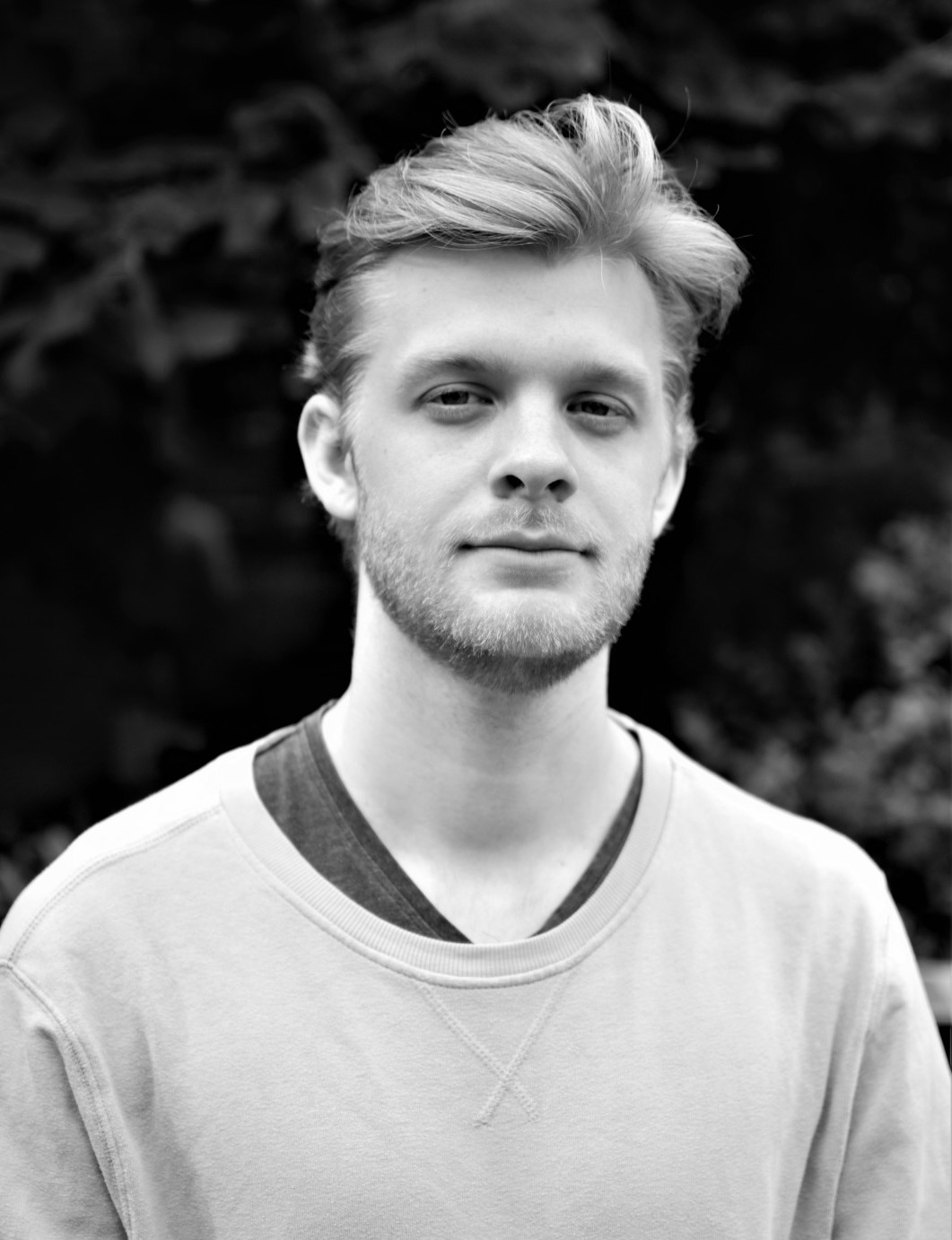 Tim Alpherts is a PhD candidate within the Civic AI Lab and the University of Amsterdam.
Tim Alpherts is a PhD candidate within the Civic AI Lab and the University of Amsterdam.
“Computer Vision models are still just complex mathematical equations that are often trained for one task, and one task only. While a Deep Vision model might be good in recognizing a house, does it know what a neighbourhood is? Our research aims to not only make fair and responsible models, but hopefully also more intelligent models that are more in line with what humans see as intelligence. If we can circumvent the need to explain what is happening after the fact, we can allow an AI’s thoughtprocess to be understood by everyone. That way we can we build a fair and responsible future.”
Floris Bex – Utrecht University and Police AI Lab (Utrecht)
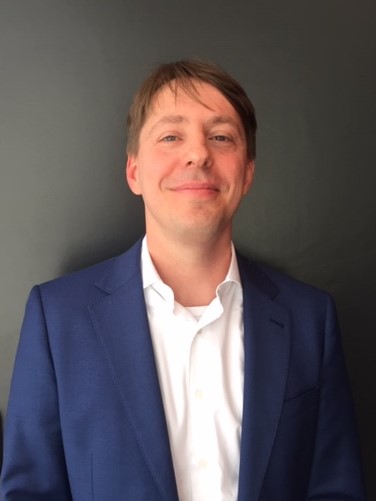 Floris Bex is an assistant professor at Utrecht University and scientific director of the Police AI Lab (Utrecht). In this course he presents a video lesson about Hybrid AI.
Floris Bex is an assistant professor at Utrecht University and scientific director of the Police AI Lab (Utrecht). In this course he presents a video lesson about Hybrid AI.
“We can say that data-driven AI is very good at sensing the environment, and that symbolic AI is better at reasoning with this sense data. At the Utrecht Police lab, we therefore work on hybrid forms of data-driven and symbolic AI.”
Ron Boelsma – Police Lab AI
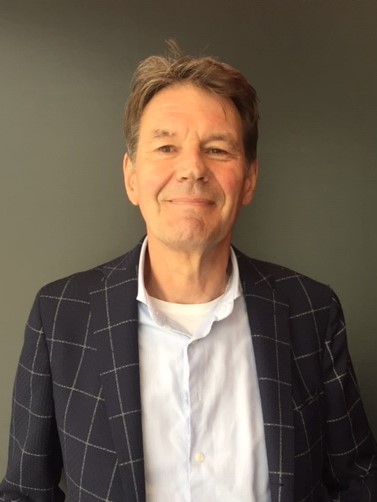 Ron Boelsma works as innovation- and knowledge broker for the Dutch National Police. In this course he explains the importance of AI and AI research for the police organization and the organizational background and practical relevance of such research.
Ron Boelsma works as innovation- and knowledge broker for the Dutch National Police. In this course he explains the importance of AI and AI research for the police organization and the organizational background and practical relevance of such research.
“AI will contribute to the development of the police of tomorrow. In a rapidly changing and complex society, AI becomes increasingly important for the Netherlands in terms of safety. The police is gaining competence in the responsible use of AI and has to gain knowledge regarding its use by criminals.”
Luuk Boulogne – Thira Lab and RadboudUMC
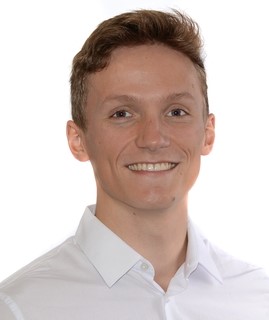 Luuk Boulogne is is a PhD candidate in the Thira Lab and the RadboudUMC. His research is focused on automated prediction of the effects of a lobectomy on a patient’s lung function, under the supervision of Bram van Ginneken. In this course he presents a use case on CORADS-AI, an algorithm that analyzes non-contrast CT scans for COVID-19.
Luuk Boulogne is is a PhD candidate in the Thira Lab and the RadboudUMC. His research is focused on automated prediction of the effects of a lobectomy on a patient’s lung function, under the supervision of Bram van Ginneken. In this course he presents a use case on CORADS-AI, an algorithm that analyzes non-contrast CT scans for COVID-19.
“I have been part of a large collaboration between Thirona, the Radboud University Medical Center, the Academic Medical Center in Amsterdam, and Fraunhofer MEVIS. Together, we worked on an AI solution for automatic assessment of COVID-19 from chest CT images.”
Elmira van den Broek – Vrije Universiteit Amsterdam
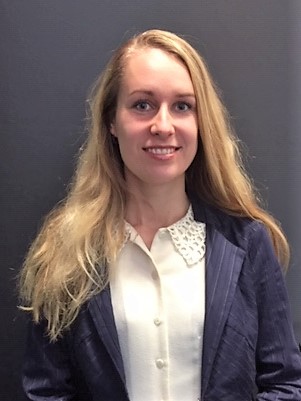 Elmira van den Broek is a PhD candidate at the KIN Center for Digital Innovation at the Vrije Universiteit Amsterdam. In this course she presents a video lesson on the topic of AI Development Process and use of People Analytics.
Elmira van den Broek is a PhD candidate at the KIN Center for Digital Innovation at the Vrije Universiteit Amsterdam. In this course she presents a video lesson on the topic of AI Development Process and use of People Analytics.
“We see AI tools also entering the world of HR, and in particular areas such as hiring. AI vendors, such as Pymetrics that you see here, promise to radically change how hiring is done, by bringing objectivity, novelty, and efficiency.”
Erdi Calli – Thira Lab and RadboudUMC
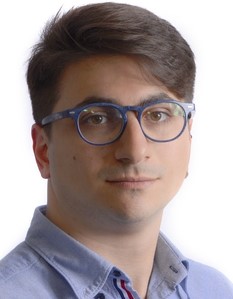 Erdi Calli is is a PhD candidate in the Thira Lab and the RadboudUMC. His research is focused on deep learning algorithms for Chest X-Rays, under the supervision of Bram van Ginneken. In this course he presents a use case on the topic of CT Robust AI for COVID-19 Detection.
Erdi Calli is is a PhD candidate in the Thira Lab and the RadboudUMC. His research is focused on deep learning algorithms for Chest X-Rays, under the supervision of Bram van Ginneken. In this course he presents a use case on the topic of CT Robust AI for COVID-19 Detection.
“We will now collect new data from those clinics in Africa, to retrain my system with data from a population where not only COVID-19 but also tuberculosis and HIV are commonly seen. What I really like is that I was able to build a practical application of robust machine learning in only a few months, and we will now field test it in Africa immediately.”
Bram van Ginneken – Thira Lab and RadboudUMC
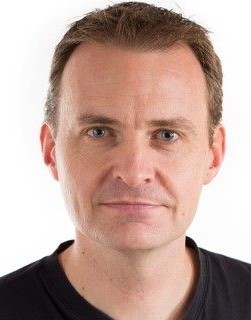 Bram van Ginneken is a Professor of Functional Image Analysis at Radboud University Nijmegen Medical Centre and one of the founders of Thirona, a company that provides quantitative analysis of chest CT scans. Besides that, he is scientific director of the Thira Lab. In this course he presents a video lesson on the topic of Imaging Diagnostics for COVID-19 (part 2).
Bram van Ginneken is a Professor of Functional Image Analysis at Radboud University Nijmegen Medical Centre and one of the founders of Thirona, a company that provides quantitative analysis of chest CT scans. Besides that, he is scientific director of the Thira Lab. In this course he presents a video lesson on the topic of Imaging Diagnostics for COVID-19 (part 2).
“Most people with COVID-19 recover quickly, but a small percentage develop severe pneumonia. They need to be admitted in a hospital, where they may get oxygen, and medication like dexamethasone. Can we use chest x-rays to find people with severe COVID-19?”
Sennay Ghebreab – Civic AI Lab and University of Amsterdam
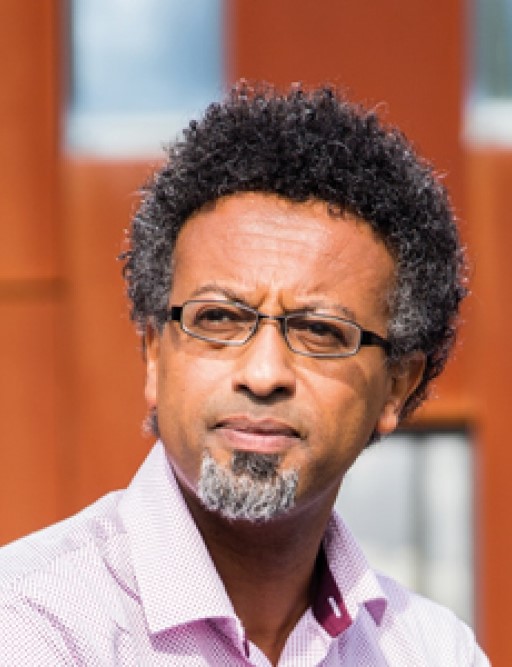 Sennay Ghebreab is a Professor of Socially-Intelligent AI, Program Director Msc Data Science & Information Systems, and Scientific Director of the Civic AI Lab. The lab, a collaboration between the Ministry of Interior Affairs, City of Amsterdam, the Vrije Universiteit Amsterdam and the University of Amsterdam develops AI technology to increase equal opportunity in the fields of education, welfare, environment, mobility and health.
Sennay Ghebreab is a Professor of Socially-Intelligent AI, Program Director Msc Data Science & Information Systems, and Scientific Director of the Civic AI Lab. The lab, a collaboration between the Ministry of Interior Affairs, City of Amsterdam, the Vrije Universiteit Amsterdam and the University of Amsterdam develops AI technology to increase equal opportunity in the fields of education, welfare, environment, mobility and health.
“AI for Social Good is on the rise. Many organisations in the public, private and nonprofit sectors are deploying AI for positive social initiatives, with varying degrees of success. The potential of AI to reduce socio-economic inequality, one of the UN’s Sustainable Development Goals, is yet to be realized.”
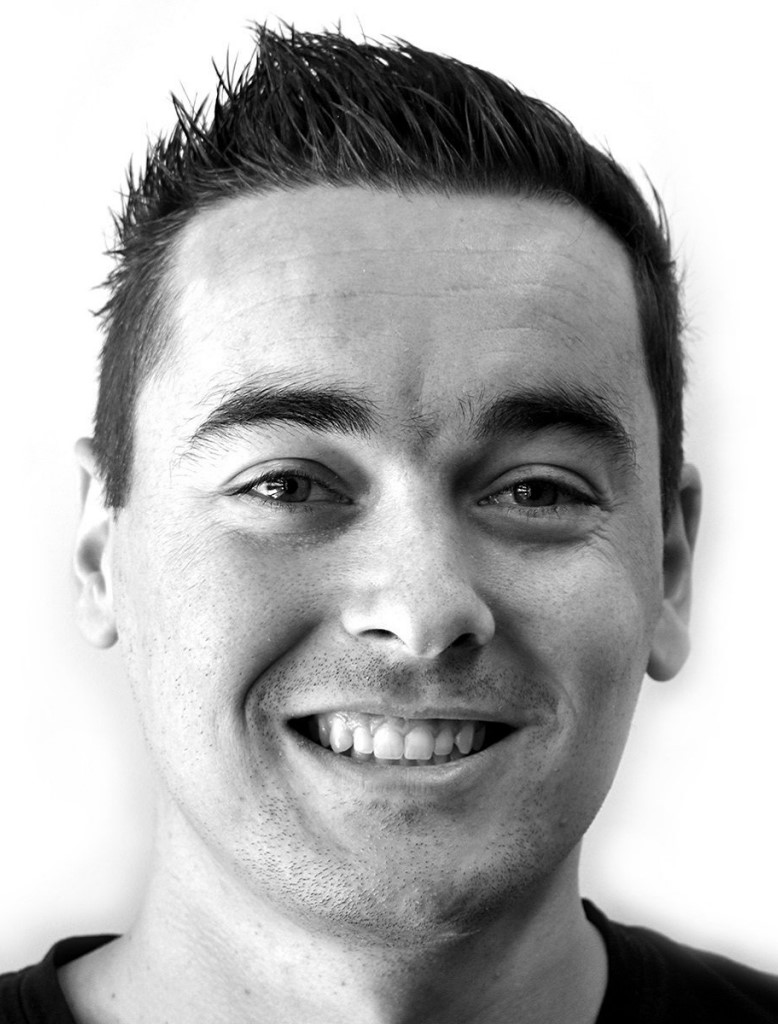
eads the development of RetCAD (software based on deep learning technology to analyze color fundus images) and CAD4COVID-CT (software based on deep learning to analyze Chest CT scans for evidence of COVID-19).
“On the 9th of June 2020, both the X-ray and CT versions of CAD4COVID received their CE-certification as a class IIa medical device. Both CAD4COVID- solutions are made available for free in the fight against the disease and are already actively used in over 100 centers in over 40 different countries worldwide.”
Ali El Hassouni – Vrije Universiteit Amsterdam
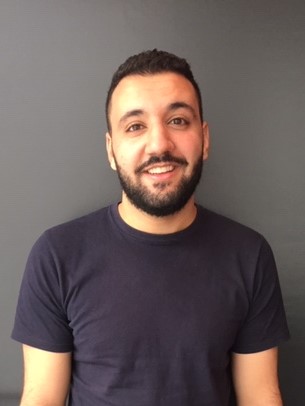 Ali El Hassouni is a PhD candidate at the Vrije Universiteit Amsterdam. In this course he presents a video lesson on the topic of Personalization in e-Health.
Ali El Hassouni is a PhD candidate at the Vrije Universiteit Amsterdam. In this course he presents a video lesson on the topic of Personalization in e-Health.
“Reinforcement learning and personalization techniques can be applied successfully in many different settings in e-health such as e-mental health but also for critical care. The right type of data is key for developing the right policies.”
Floris den Hengst – AI for FinTech Research and Vrije Universiteit Amsterdam
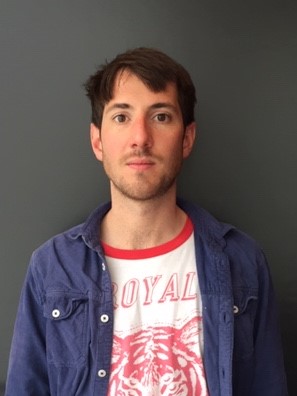 Floris den Hengst is a PhD candidate within the AI for FinTech Research with ING and the Vrije Universiteit Amsterdam. In this course he presents two video lessons, one on the topic of Personalized Dialogue Management and another about The Promise of Personalization.
Floris den Hengst is a PhD candidate within the AI for FinTech Research with ING and the Vrije Universiteit Amsterdam. In this course he presents two video lessons, one on the topic of Personalized Dialogue Management and another about The Promise of Personalization.
“Reinforcement learning can be successfully aplied in personalized dialogue management when three factors apply. First, the problem of dialogue management is inherently sequential. Second, an up-front optimal solution is not available. And third, data that can help finding this optimal is available.”
Mark Hoogendoorn – Vrije Universiteit Amsterdam
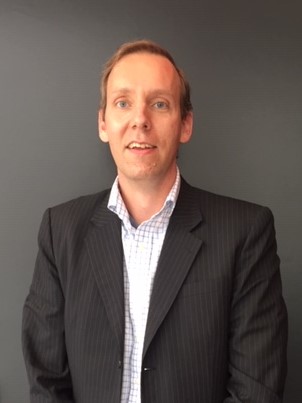 Mark Hoogendoorn is a Full Professor of Artificial Intelligence at the Department of Computer Science of the Vrije Universiteit Amsterdam and chair of the Quantitative Data Analytics group.
Mark Hoogendoorn is a Full Professor of Artificial Intelligence at the Department of Computer Science of the Vrije Universiteit Amsterdam and chair of the Quantitative Data Analytics group.
“Personalization is a process that changes the functionality, interface, information access and content, or distinctiveness of a system to increase its personal relevance to an individual or a category of individuals. Often personalization is done over a number of interactions and you figure out what actions work best by trying.”
Marleen Huysman – Vrije Universiteit Amsterdam
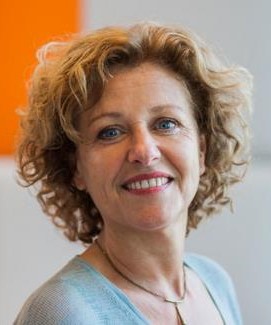 Marleen Huysman is a full professor at the Vrije Universiteit Amsterdam where she is director of the KIN Center for Digital Innovation. Besides that, she is head of the department of Knowledge, Information and Innovation. In this course she presents a video lesson on the topic of Implementation (management) of AI in Organizations.
Marleen Huysman is a full professor at the Vrije Universiteit Amsterdam where she is director of the KIN Center for Digital Innovation. Besides that, she is head of the department of Knowledge, Information and Innovation. In this course she presents a video lesson on the topic of Implementation (management) of AI in Organizations.
“One of the most pressing questions about AI is what will happen with our work. Increasingly, we turn against the idea that the many years of experience gained during our education and professional careers, can be taken over by AI systems. It’s not so much that jobs will disappear but AI will indeed have an impact on work, oftentimes in unexpected ways.”
Marius Kok – Dutch National Police
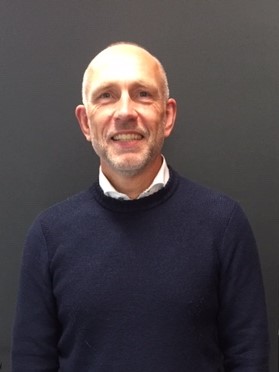 Marius Kok works as a Teamchef Pre Development for the Dutch National Police. In this course he presents a video lesson on the topic of AI implementation at the Dutch Police: Distraction in Traffic.
Marius Kok works as a Teamchef Pre Development for the Dutch National Police. In this course he presents a video lesson on the topic of AI implementation at the Dutch Police: Distraction in Traffic.
“If we take a conservative estimate, then at least 30 deaths with many tens of millions in social costs suffered in 2016 were caused by distraction in traffic. That is why the Dutch law was amended in 2019 so that these fines can be issued remotely and on license plate recognition. This opened the way for the automated detection and processing of the violation, similar to automated fines on speeding and driving through a red light.”
Cynthia Liem – Delft University of Technology
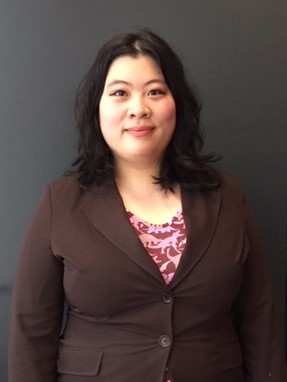 Cynthia Liem is an assistant professor at the Multimedia Computing Group of Delft University of Technology. In this course she presents a video lesson on the topic of Modelling Implications of AI.
Cynthia Liem is an assistant professor at the Multimedia Computing Group of Delft University of Technology. In this course she presents a video lesson on the topic of Modelling Implications of AI.
“AI is not magic; it is technology, that we can use through technical frameworks. For this, we first need to translate the important characteristics of our problems in such a way that those frameworks can handle them. In other words, we will need to do modeling.”
Ilse van der Linden – Civic AI Lab and University of Amsterdam
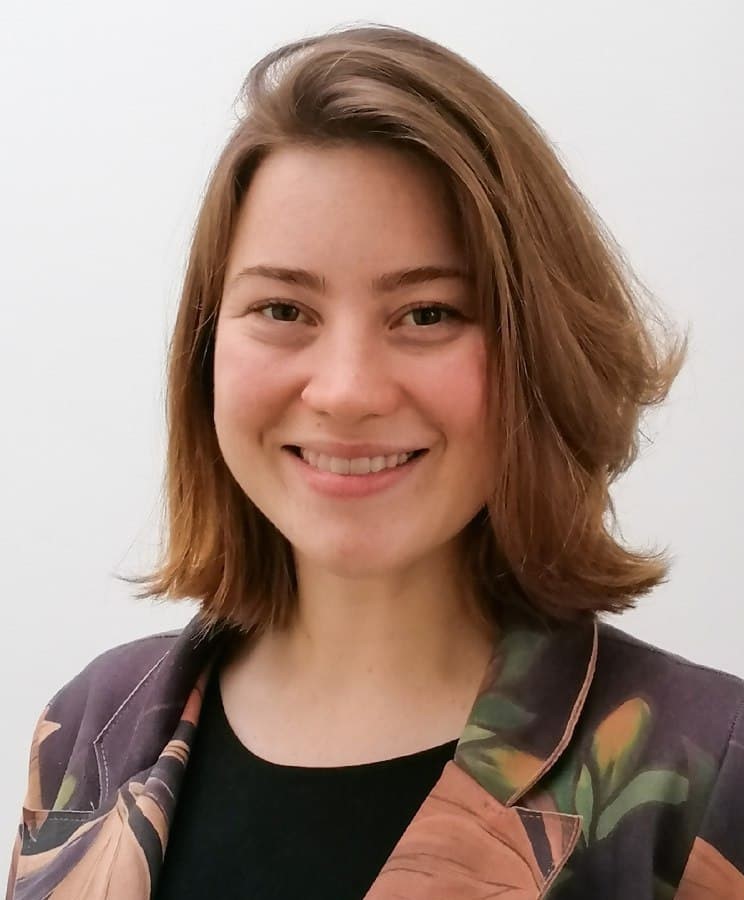 Ilse van der Linden is a PhD candidate within the Civic AI Lab with the University of Amsterdam.
Ilse van der Linden is a PhD candidate within the Civic AI Lab with the University of Amsterdam.
“My research focus is on creating AI-driven systems that will help improve childrens’ wellbeing.
The focus is on overweight and obesity in particular, since overweight and obesity in children leads to chronic well-being problems throughout life. Did you know that almost 1 in 5 children in Amsterdam are overweight? That is almost one and a half times as much as the national average.”
Daphne Odekerken – Police Lab AI (Utrecht) and Utrecht University
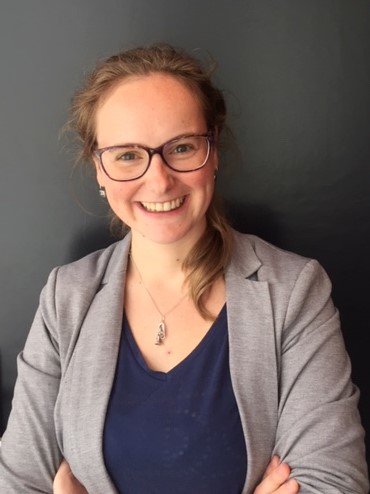 Daphne Odekerken is a PhD candidate in the Police Lab AI (Utrecht) and at Utrecht University. In this course she presents a video lesson on an online chatbot for reporting fraud.
Daphne Odekerken is a PhD candidate in the Police Lab AI (Utrecht) and at Utrecht University. In this course she presents a video lesson on an online chatbot for reporting fraud.
“We have seen that the intake agent combines various techniques to meet specific requirements. It interprets text, for example by applying machine learning for information extraction. Thanks to the use of an argumentation module, the agent can give a transparent advice. By virtue of this transparency, it becomes easier to find and correct eventual mistakes, for example by adjusting a rule. Finally, the reinforcement learning component optimizes the efficiency of the dialogue.”
Clarisa Sánchez Gutiérrez – Thira Lab and University of Amsterdam
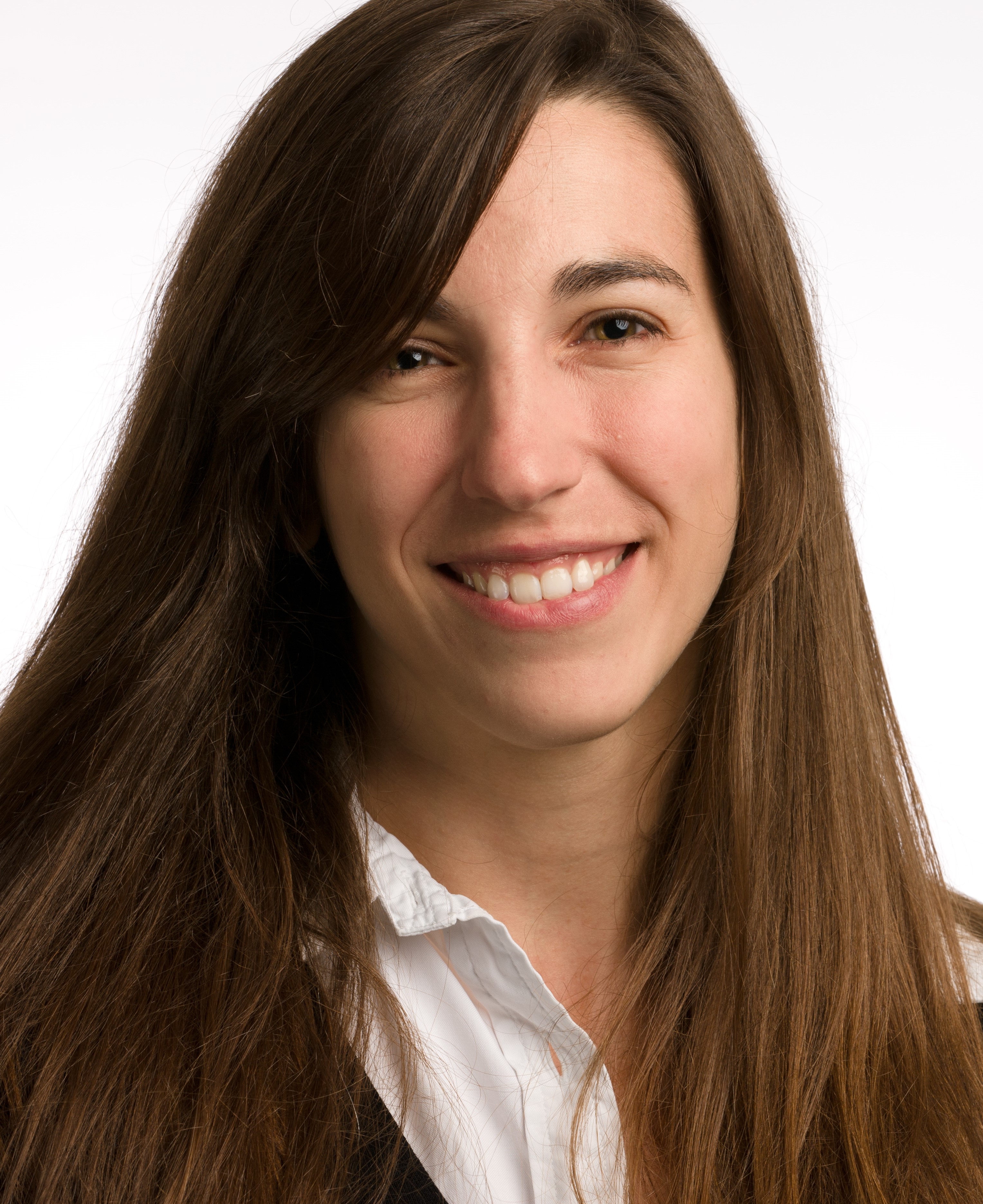 Clarisa Sánchez Gutiérrez is a Full Professor of AI and Health at University of Amsterdam and scientific director of the Thira Lab. In this course she presents a video lesson on the topic of Imaging Diagnostics for COVID-19 (part 1).
Clarisa Sánchez Gutiérrez is a Full Professor of AI and Health at University of Amsterdam and scientific director of the Thira Lab. In this course she presents a video lesson on the topic of Imaging Diagnostics for COVID-19 (part 1).
“There are three uses for CT in COVID-19: triaging in a situation where there are a lot of patients and limited hospital capacity, problem-solving for patients that are negative on PCR but have typical COVID symptoms so they could have COVID but also another lung disease, and, third, personalized prediction models.”
Fatemeh Sarvi – AIRLab Amsterdam and University of Amsterdam
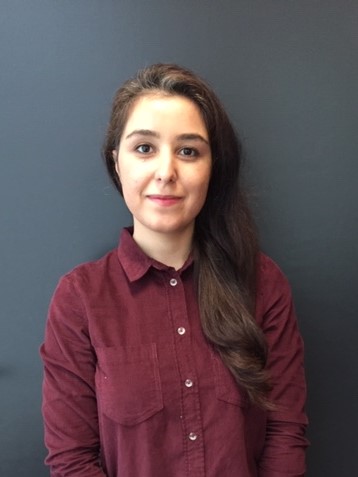 Fatemeh Sarvi is a PhD candidate at the AIRLab Amsterdam and the University of Amsterdam. In this course she presents a video lesson on the topic of fair ranking on two-sided markets.
Fatemeh Sarvi is a PhD candidate at the AIRLab Amsterdam and the University of Amsterdam. In this course she presents a video lesson on the topic of fair ranking on two-sided markets.
“The fact that ranking items in a fair way is more complicated than just sorting them based on relevance when it comes to two-sided markets. Because here we should consider both consumers and supplier. Also, we don’t have a general definition for fairness that works everywhere, so, it can be different from case to case. And lastly, there’s often a trade-off between fairness and utility, and it’s important how to balance these two objectives.”
Maarten Sukel – Civic AI Lab and Municipality of Amsterdam
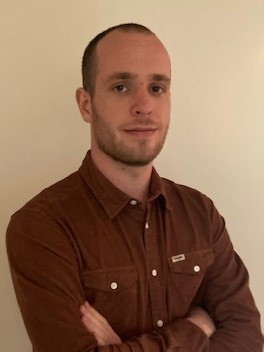 Maarten Sukel is AI lead at the Municipality of Amsterdam and a PhD candidate within the Civic AI Lab with the University of Amsterdam.
Maarten Sukel is AI lead at the Municipality of Amsterdam and a PhD candidate within the Civic AI Lab with the University of Amsterdam.
“At the city of Amsterdam we believe Artificial Intelligence will have a significant impact on the people living in Amsterdam. But how do we encourage positive developments, solve complex challenges and apply the necessary regulation to avoid any negative effects? The collaboration with the Civic AI lab helps us to achieve our ambition: a free digital city, an inclusive digital city, and a creative digital city.”
Bas Testerink – Police AI Lab (Utrecht) and Dutch National Police
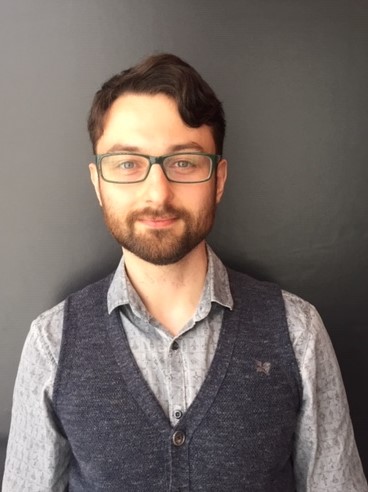 Bas Testerink is an AI Scientists at the Dutch National Police and within the Police AI Lab (Utrecht). In this course he presents a video lesson on the topic of Challenges when applying AI at the police.
Bas Testerink is an AI Scientists at the Dutch National Police and within the Police AI Lab (Utrecht). In this course he presents a video lesson on the topic of Challenges when applying AI at the police.
“An important theme in this course are the challenges that one has to face when applying AI in practice. Well-known and important challenges which we anticipated for our applications were for instance the task of getting high quality data and the prevention of unwanted bias.”
Georgios Tsatsaronis – Elsevier
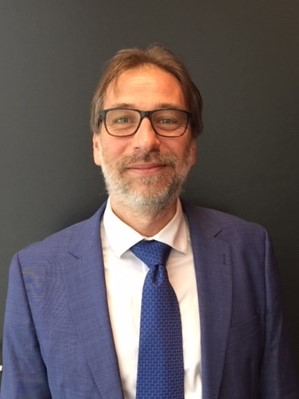 Georgios Tsatsaronis works Vice President Data Science, Research Content Operations at Elsevier. In this course he presents a video lesson on the topic of Shaping a Corporate AI Strategy.
Georgios Tsatsaronis works Vice President Data Science, Research Content Operations at Elsevier. In this course he presents a video lesson on the topic of Shaping a Corporate AI Strategy.
“There are at least 8 cornerstone elements that need to be considered by any organization towards building a successful AI strategy: 1) People, 2) a solid data strategy, 3) technology, 4) a quality framework, 5) agile product development, 6) experimentation and innovation, 7) ethics in an AI framework, and 8) research, collaborations and partnerships.”
Bart Voorn – Ahold Delhaize
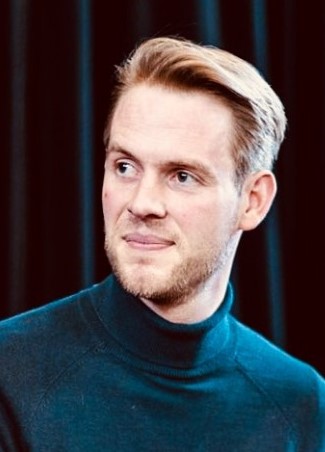 Bart Voorn is Director Data, AI & Robotics (DAR) at Ahold Delhaize.
Bart Voorn is Director Data, AI & Robotics (DAR) at Ahold Delhaize.
“We focus our work on key topics such as forecasting of behavior, ranking of search results and recommendation of the right products.”

AI in Practice: Applying for AI by TU Delft OpenCourseWare is licensed under a Creative Commons Attribution-NonCommercial-ShareAlike 4.0 International License.
Based on a work at https://online-learning.tudelft.nl/courses/ai-in-practice-applying-ai//



